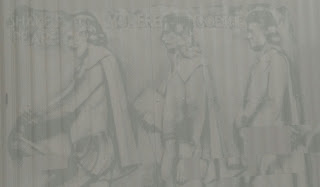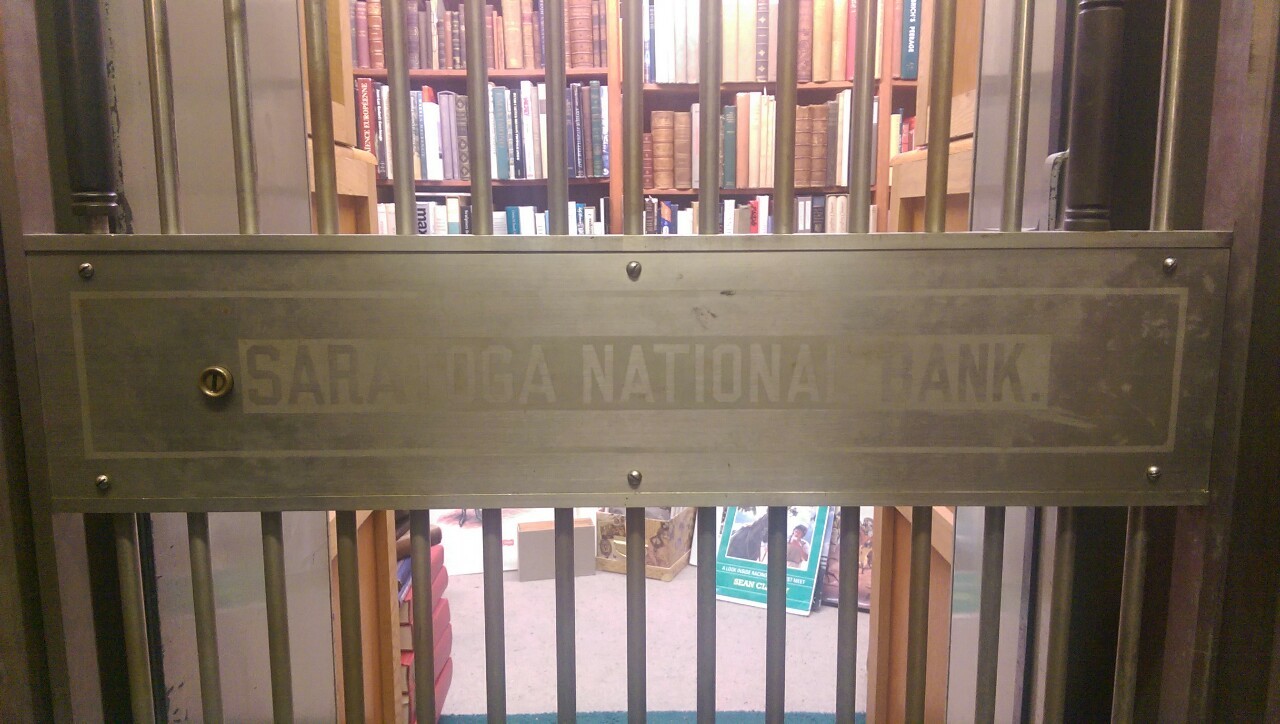 |
| You might ask yourself why UC thinks it worthwhile to put vinyl transfers of great authors on our fine corrugated temporary learning space. |
Aside from the formal canon-building that Eaglestone describes in today's reading, there are more subtle processes that enshrine (and exclude) works of literature from various field ands eras.
One of the more common methods, inside and outside of academia, is the simple act of list-making, from the 54-volume Great Books of the Western World series, first published in 1952 by Encyclopædia Britannica, to more recent lists like the Modern Library 100 from 1998 (with separate lists for fiction and non-fiction), the BBC's "The Big Read" List from 2003, and Time Magazine's All-Time 100 Novels (published in 2010, and, despite its name, only covering books published since Time's launch in 1923).
More idiosyncratic versions of this phenomenon show up on our newsfeeds all the time: cf. Flavorwire's recent "A College Curriculum on Your Bookshelf: 50 Books for 50 Classes" or Buzzfeed's "How Well Read Are You?" quiz.
Another sort of list-making is tied to prize culture. In the US we typically recognize three major literary prizes given annually in various genres: the Pulitzer Prize, the National Book Award, and the National Book Critics Circle Award. Britain has the Man Booker Prize, which recently (and controversially opened to non-UK authors), Canada has the Griffin Poetry Prize, and there are many other national and/or regional prizes, grants, etc.
One might also consider career-long awards such as the Nobel Prize in Literature, the MacArthur Foundation Prize (colloquially known as the "genius grant"), and Guggenheim Fellowships, along with literature grants from the National Endowment for the Arts.
If you're interested in reading more about this process — which has generated a lot of ink over the past several decades from both sides of the debate — here are a few titles worth looking into:
- Allan Bloom, The Closing of the American Mind: How Higher Education Has Failed Democracy and Impoverished the Souls of Today's Students
- Andrew Hartman, A War for the Soul of America: A History of the Culture Wars
- James Atlas, Battle of the Books: The Curriculum Debate in America
- Barbara Herrnstein Smith, Contingencies of Value: Alternative Perspectives for Critical Theory
- Jim English, The Economy of Prestige: Prizes, Awards, and the Circulation of Cultural Value




